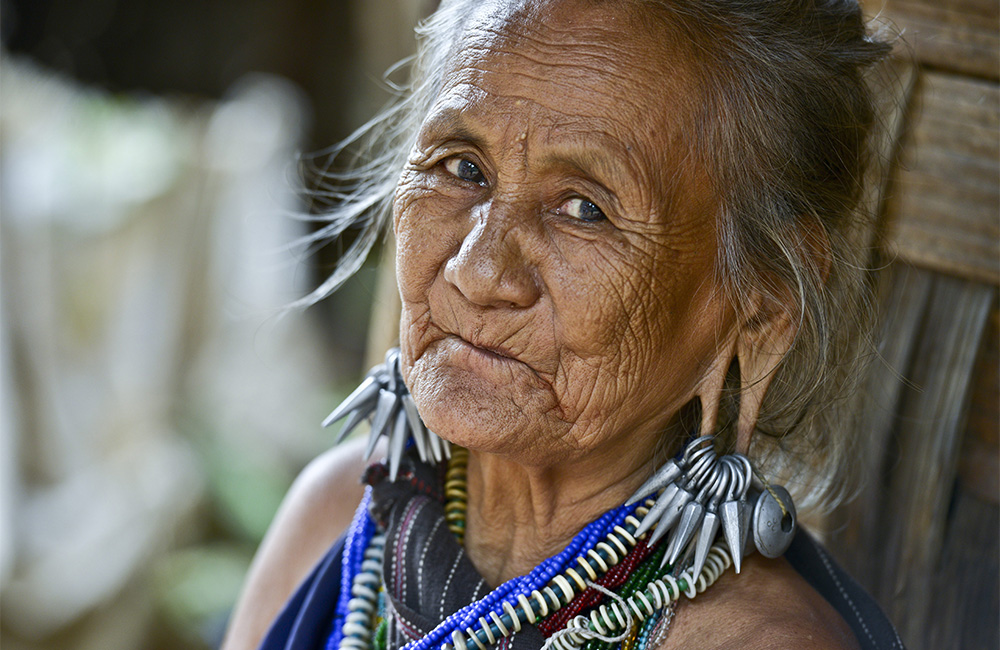Baw Meh dreams of a safer future for her grandchildren.
She fled violence in Myanmar.
Baw Meh, 78 years old: “I got married very young. My parents arranged it. We never saw each other before the wedding. He said, you’re very slim, and I said, you’re handsome and manly. We laughed but after those first words we were shy to walk together. We had good times and difficult times. When the fighting spread to our village we were forced to move. The soldiers burnt everything and we lost all our property. There were many of us crossing mountains and rivers. We took a basket to carry a pot, an axe, charcoal and 30 cups of rice. I carried the children and ran. They grew up as we ran and they became adults in the camp in Thailand. ”
“We had to flee just after I gave birth to the youngest daughter. I wanted her to go to school when she was young and to be educated but we couldn’t. Now I live with her and my grandsons who attend school at the camp. It makes me happy. I hope they continue studying because I want them to be educated. I want them to be like you [referring to UNHCR staff].”
“I thought we would go back to our village soon after we left. But we couldn’t. We have been in this camp for about 20 years.”
Baw Meh likes to sing traditional Karenni songs when she cooks for her family in the evenings. She also likes to speak about her husband, who died in 2013 before he could fulfill his dream of returning home. Many of her children and grandchildren have been resettled to third countries. One of her grandsons said to her before leaving: “I’ll take care of you from America. One day I will come back to see you.” Baw Meh has refused to leave. She prefers to stay close to her husband, who is buried in the western part of the camp as it is closer to their village in Myanmar, which lies across the border, just out of reach.
Baw Meh, now 77, fled Myanmar’s Kayah state in 1996. Twenty years later, three generations of her Karenni family are still living at Ban Mai Nai Soi refugee camp in northern Thailand. Myanmar refugees in Thailand are victims of one of the longest-running refugee situations in the world, though some of them are now considering voluntary repatriation to Myanmar as conditions improve back home.
Show your solidarity with refugees like Bah Meh by signing the #WithRefugees petition today.
Did you like Baw Meh’s story? Share it with your friends!
Thailand is not a signatory to the 1951 Refugee Convention or its 1967 Protocol and does not have a formal national asylum framework. The Thai Government currently hosts refugees from Myanmar in nine temporary shelters along the border.
Refugees from Myanmar of mostly Kayin and Kayah origin fled armed conflict and have sought refuge in Thailand for more than three decades in temporary shelters administered by the host country. Karenni refugees have endured one of the longest-running refugee situations in the world.
More stories
Solaf survived the war in Syria.
She loves sports and dreams of living in America.
Carmen fled violence in Colombia.
She hopes to inspire other women through her work.
Mojtaba escaped from Taliban violence.
He dreams of finding a cure for cancer.










